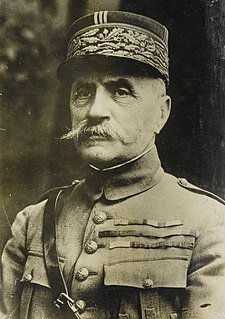A Quote by James Madison
In time of actual war, great discretionary powers are constantly given to the Executive Magistrate. Constant apprehension of War, has the same tendency to render the head too large for the body. A standing military force, with an overgrown Executive will not long be safe companions to liberty.
Related Quotes
In war, too, the discretionary power of the Executive is extended; its influence in dealing out offices, honors, and emoluments is multiplied; and all the meaning of seducing the minds, are added to those of subduing the force, of the people. The same malignant aspect in republicanism may be traced in the inequality of fortunes, and the opportunities of fraud, growing out of a state of war, and in the degeneracy of manners and morals, engendered by both. No nation could preserve its freedom in the midst of continual warfare.
It equally proves, that though individual oppression may now and then proceed from the courts of justice, the general liberty of the people can never be endangered from that quarter; I mean so long as the judiciary remains truly distinct from both the legislature and the Executive. For I agree, that "there is no liberty, if the power of judging be not separated from the legislative and executive powers." And it proves, in the last place, that as liberty can have nothing to fear from the judiciary alone, but would have every thing to fear from its union with either of the other departments.
It is because peaceful agitation and passive resistance are effective that I uphold them, and it is because force strengthens tyranny that I condemn it. War and Authority are companions; Peace and Liberty are companions. It is foolish in the extreme not only to resort to force before necessity compels, but especially to madly create the conditions that will lead to this necessity.
Particularly when the war power is invoked to do things to the liberties of people, or to their property or economy that only indirectly affect conduct of the war and do not relate to the engagement of the war itself, the constitutional basis should be scrutinized with care. ... I would not be willing to hold that war powers may be indefinitely prolonged merely by keeping legally alive a state of war that had in fact ended. I cannot accept the argument that war powers last as long as the effects and consequences of war for if so they are permanent -- as permanent as the war debts.
The constitution has divided the powers of government into three branches, Legislative, Executive and Judiciary, lodging each with a distinct magistracy. The Legislative it has given completely to the Senate and House of Representatives. It has declared that the Executive powers shall be vested in the President, submitting special articles of it to a negative by the Senate, and it has vested the Judiciary power in the courts of justice, with certain exceptions also in favor of the Senate.
...to support the Constitution, which is the cement of the Union, as well in its limitations as in its authorities; to respect the rights and authorities reserved to the States and to the people as equally incorporated with and essential to the success of the general system;... to keep within the requisite limits a standing military force, always remembering that an armed and trained militia is the firmest bulwark of republics-that without standing armies their liberty can never be in danger, nor with large ones safe.
The Obama administration has abused the executive power, enforcing Common Core on the states. It has used race to the top fans to effectively blackmail and force the states to adapt Common Core. But in one silver lining of Obama abusing executive power is that everything done with executive power can be undone with executive power and I intend to do that.




























